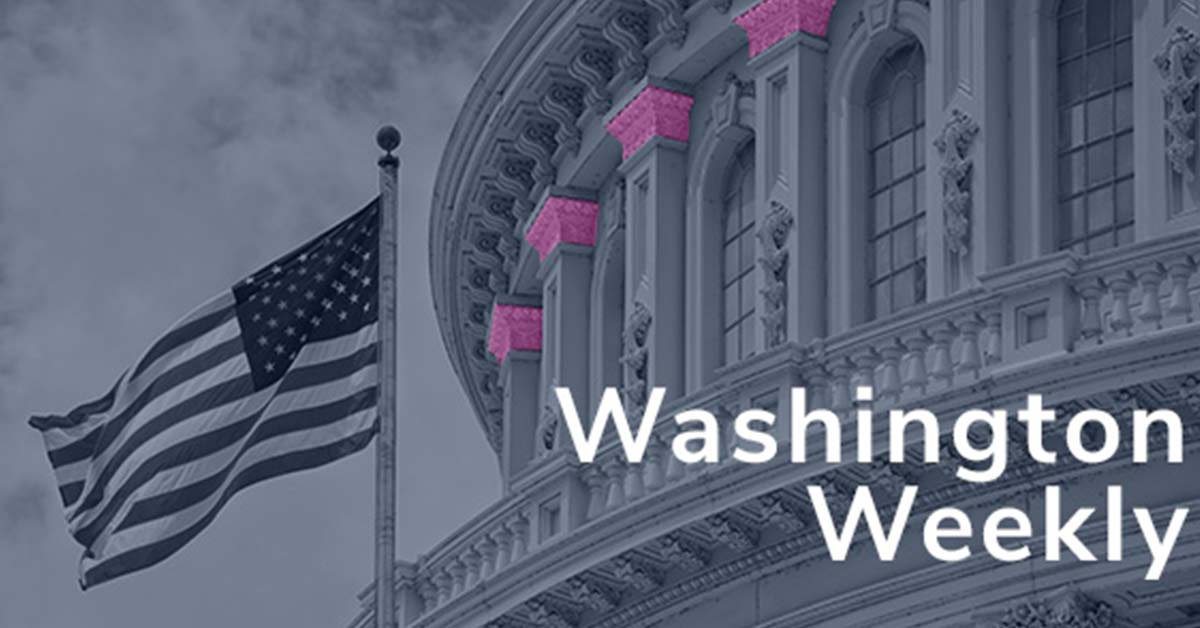
Infrastructure Week is Finally Here
Late last Friday, the House passed the $550 billion Bipartisan Infrastructure Bill – the final step needed to send the measure to President Biden’s desk for his signature. The long-awaited vote came after months of delays and political balking between House Progressives and Senate Moderates over the scope of the separate social safety net reconciliation bill.
The fates of the two bills had been uncertain with House Progressives insisting that they should pass together and Moderates trying to prioritize the bipartisan infrastructure bill, since it contained fewer partisan measures risky to Members in swing districts. Speaker Pelosi aimed to appease both factions by holding both a final vote on the infrastructure bill and a procedural vote on reconciliation, which would schedule a final vote on that latter bill this month. Nevertheless, key House Progressives – Rep. Jamaal Bowman (D-NY), Rep. Cori Bush (D-MO), Rep. Alexandria Ocasio-Cortez (D-NY), Rep. Ilhan Omar (D-MN), Rep. Ayanna Pressley (D-MA), and Rep. Rashida Tlaib (D-MI) – voted against the infrastructure bill.
Although Democrats could only afford to lose three votes, 13 House Republicans voted for the bill and secured its passage:
- Rep. Don Bacon (R-NE)
- Rep. Brian Fitzpatrick (R-PA)
- Rep. Andrew Garbarino (R-NY)
- Rep. Anthony Gonzalez (R-OH)
- Rep. John Katko (R-NY)
- Rep. Adam Kinzinger (R-IL)
- Rep. Nicole Malliotakis (R-NY)
- Rep. David McKinley (R-WV)
- Rep. Tom Reed (R-NY)
- Rep. Chris Smith (R-NJ)
- Rep. Fred Upton (R-MI)
- Rep. Jeff Van Drew (R-NJ)
- Rep. Don Young (R-AK).
Notably, the Bipartisan Infrastructure Bill includes:
- A five-year reauthorization of the federal highway, transit, and safety programs
- Funds for essential Amtrak grants and other real improvement grants
- Widespread broadband deployment, with a specific focus on rural and underserved areas
- Removal of all lead water pipes and funding for other essential clean water infrastructure
- Equitable, nationwide roll out of electric vehicle infrastructure, including charging stations
- Electrical grid resiliency programs
- Programs and incentives to shore-up energy cybersecurity
- Research and production of domestic batteries and creating an essential domestic supply chain for the same
- Funding for carbon reduction programs
- Funding for hydrogen fuel production and nuclear energy
The reconciliation bill is scheduled to be voted on next week, by which time a final analysis from the Congressional Budget Office will detail its costs if passed.
The House & Senate
The House and Senate both have a committee work week with no scheduled floor activity.
Becker’s Federal Lobbying Team will continue to monitor these developments as they evolve and will share with you as soon as information becomes available.